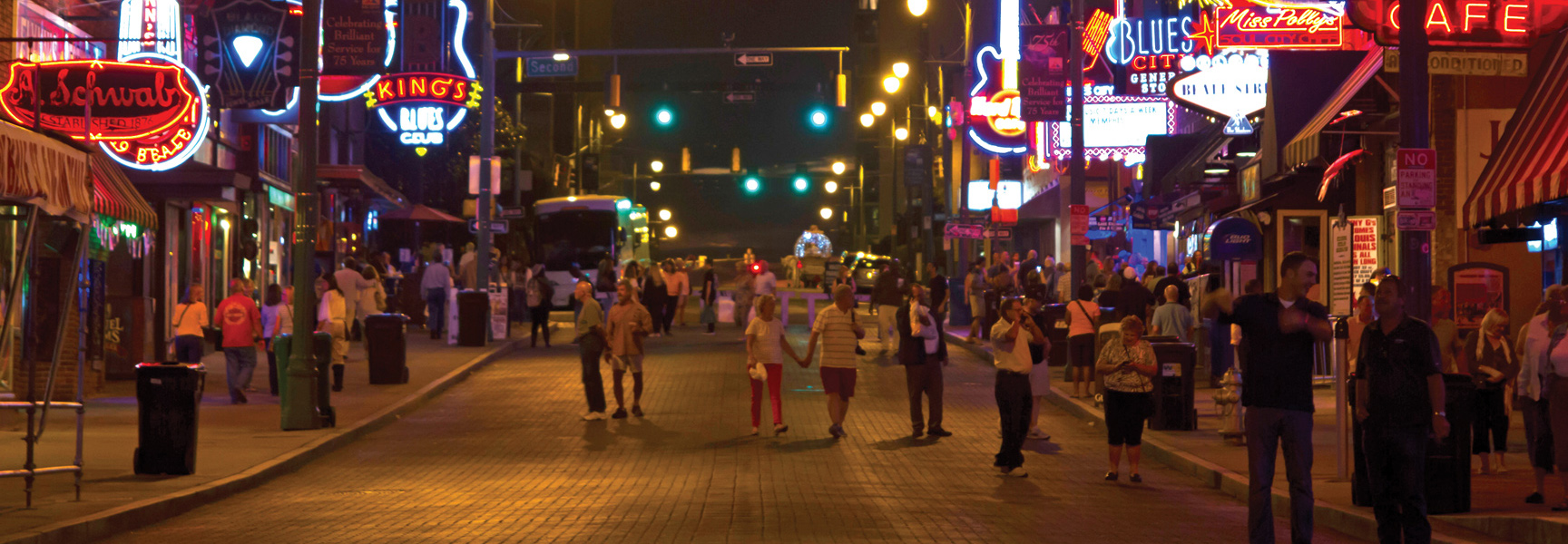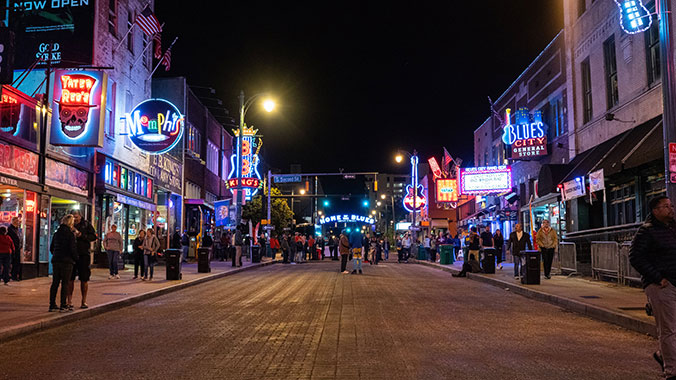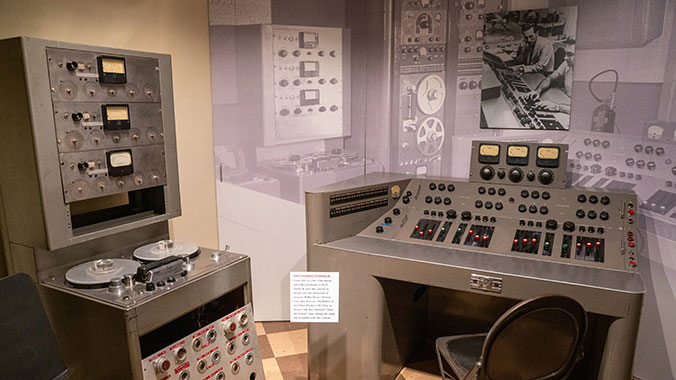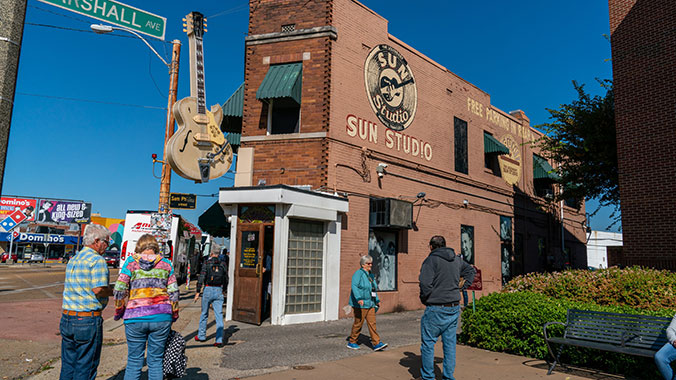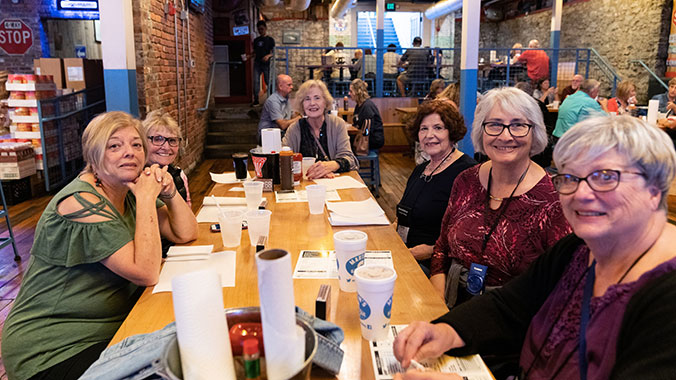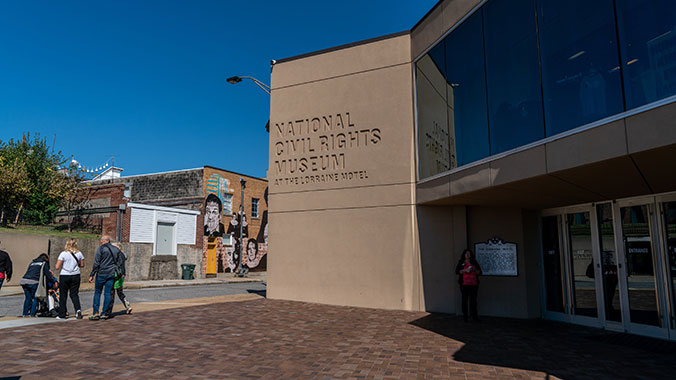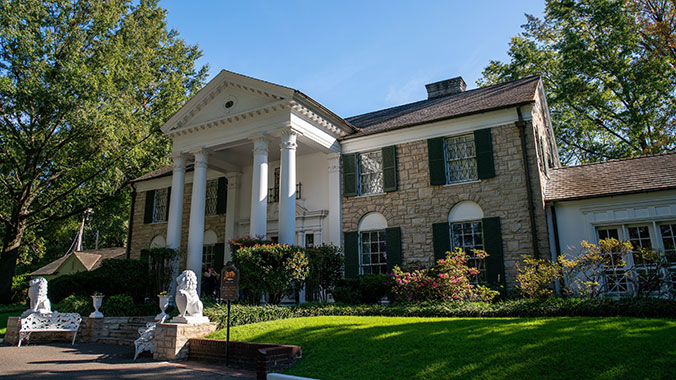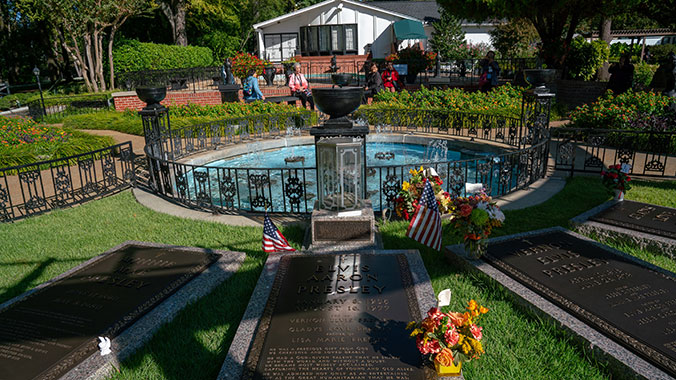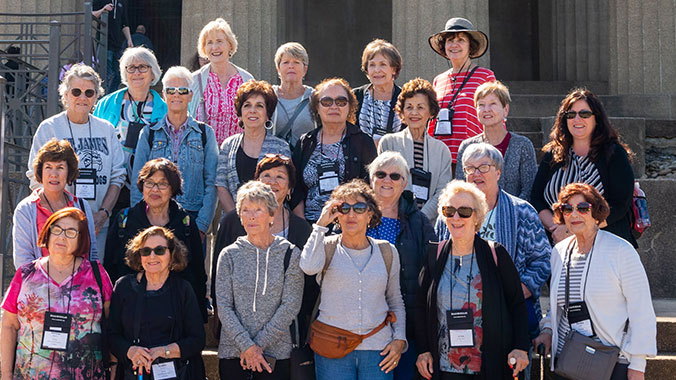A Brief History of Memphis
by G. Wayne Dowdy
No other southern city has a history quite like Memphis. First purchased in the early 1800s from natives to serve as a vital port for the emerging American river trade, the city flourished until the tumultuous years of the Civil War brought chaos and uncertainty. Yet the city survived. Through the triumphs and tragedies of the civil rights movement and beyond, Memphis endured it all. Despite its compelling story, no concise history of this home of soulful music and unmistakable flavor is available to modern readers. Thankfully, local historian and Memphis archivist G. Wayne Dowdy has filled this gap with a history of Memphis that is as vibrant and welcoming as the city itself. Join Dowdy as he tells the city's story as only a Memphian can.
A Guide to Historic Nashville, Tennessee [Paperback]
by James A. Hoobler
Written by accomplished historian James Hoobler, senior curator of art and architecture at the Tennessee State Museum and former executive director of the Tennessee Historical Society, this book offers extraordinary insight into Nashville's heritage. Carefully researched and exceptionally written, it is a wonderful companion, both for visitors and for Nashville residents who want to see their hometown in a new light.
Battling the Plantation Mentality: Memphis and the Black Freedom Struggle (The John Hope Franklin Series in African American History and Culture)
by Laurie B. Green
African American freedom is often defined in terms of emancipation and civil rights legislation, but it did not arrive with the stroke of a pen or the rap of a gavel.No single event makes this more plain, Laurie Green argues, than the 1968 Memphis sanitation workers' strike, which culminated in the assassination of Martin Luther King Jr. Exploring the notion of "freedom" in postwar Memphis, Green demonstrates that the civil rights movement was battling an ongoing "plantation mentality" based on race, gender, and power that permeated southern culture long before--and even after--the groundbreaking legislation of the mid-1960s.
With its slogan "I AM a Man!" the Memphis strike provides a clarion example of how the movement fought for a black freedom that consisted of not only constitutional rights but also social and human rights. As the sharecropping system crumbled and migrants streamed to the cities during and after World War II, the struggle for black freedom touched all aspects of daily life. Green traces the movement to new locations, from protests against police brutality and racist movie censorship policies to innovations in mass culture, such as black-oriented radio stations. Incorporating scores of oral histories, Green demonstrates that the interplay of politics, culture, and consciousness is critical to truly understanding freedom and the black struggle for it.
Hidden History of Memphis (Tennessee) (Hidden Histories)
by G. Wayne Dowdy
Step inside the fascinating annals of the Bluff City's history and discover the Memphis that only few know. G. Wayne Dowdy, longtime archivist for the Memphis Public Library, examines the history and culture of the Mid-South during its most important decades. Well-known faces like Clarence Saunders, Elvis Presley and W.C. Handy are joined by some of the more obscure characters from the past, like the Memphis gangster who inspired one of William Faulkner's most famous novels, the local Boy Scout who captured German spies during World War I, the Memphis radio station that pioneered wireless broadcasting and so many more. Also included are the previously unpublished private papers and correspondence of former mayor E.H. Crump, giving us new insight and a front-row seat to the machine that shaped Tennessee politics in the twentieth century.
Hidden History of Nashville (TN) [Paperback]
by George R. Zepp
Perched on the banks of the Cumberland River, Nashville is best known for its role in the civil rights movement, world-class education and, of course, country music. In this unique collection of columns, longtime journalist and Tennessee native George Zepp illuminates a less familiar side of the city. Learn the secrets of Timothy Demonbreun, one of the city's first residents, who lived with his family in a cliff-top cave; Cortelia Clark, the blind bluesman who continued to perform on street corners after winning a Grammy award; and Nashville's own Cinderella story, which involved legendary radio personality Edgar Bergen and his ventriloquist protegee. Cleverly rendered, using questions from readers across the nation, these little-known tales abound with Music City mystery and charm.
How Nashville Became Music City, U.S.A.: 50 Years of Music Row [Paperback]
by Michael Kosser
How did a medium-sized Southern river town become arguably the most important music center in America? In How Nashville Became Music City, U.S.A. , we learn how a single studio in a tiny duplex house became Music Row, a ten-block area populated by hundreds of talented people whose job is to simply make music. The book features stories from publishers, songwriters and others who help tell the evolution of this fabled center of music. It's where Elvis ushered in the commercial rock 'n' roll explosion by recording "Heartbreak Hotel," Patsy Cline, Jim Reeves, and Willie Nelson taught mainstream America to love soulful ballads, and Bob Dylan recorded three of his most important albums. The full-length CD includes 12 recordings made in the early studios of Music Row, giving listeners a rare chance to hear the demos made by some of Nashville's most talented artists. Songs include "Bye, Bye, Love," "Crazy," "King of the Road," "Walkin' After Midnight" and "He Stopped Loving Her Today."
Memphis Beat : The Lives and Times of America's Musical Crossroads
by Larry Nager
This book fills in what isn't so familiar: Memphis, it reveals, is our great cultural mixing board, where all the black and white folk have met and done musical business for two centuries or more. Larry Nager, former music editor of the "Memphis Commercial Appeal," offers more than a casual history. His chronicle reaches back into the nineteenth century, when Memphis was a wild frontier town full of whiskey, fiddle players, and minstrelsy. It hits cruising speed at the turn of the century, as W. C. Handy discovered the blues, women like Lil Armstrong and Memphis Minnie kept up with the men, and a Memphis deejay dreamed up the Grand Ole Opry. It chronicles the strange alchemy by which local rhythm 'n' blues, hard country, and black and white gospel got remade into powerful rock and roll in Sam Phillips's Sun Records studio on Union Avenue. The beat goes on into the '60s and the era of Stax and Hi Records - when the first integrated generations, raised on Sun 45s, started waxing their own sounds. And it follows Memphis even into contemporary times, through Big Star's adventures at Ardent Records, the difficult revival of Beale Street, and the birth of the House of Blues. There is triumph and tragedy here, and much in between - from the stalwart presence of lifelong musicians like Gus Cannon and Furry Lewis, through the horrific accident that killed Otis Redding, the Bar-Kays, and years and years of musical dreams.
Nashville Streets and Their Stories
by Ridley Wills II
In this 2012 publication Ridley Wills tells the tales of the individuals and events that shaped Nashville and its surrounding communities such as Oak Hill and Belle Meade. In Nashville Streets and Their Stories, he divulges interesting facts about how presidents, politicians, businessmen, real estate developers, financiers, Civil War battles and Southern plantations combined to shape Nashville's unique history. Wills recounts local events ranging from the 1792 signing of a treaty between settlers and the Cherokee, Chickasaw and Choctaw tribes at Treaty Oak to the more recent 2010 renaming of McLemore Street to YMCA Way. He identifies some areas such as "little Hollywood," "Hell's Half Acre, "The Nations," and others that are linked by the streets of Nashville. Listing more than five hundred of Nashville's most prominent place names, organized alphabetically, and illustrated with rarely seen photographs and illustrations, Nashville Streets and Their Stories captures the spirit of Nashville's forward thinkers and progressive builders
